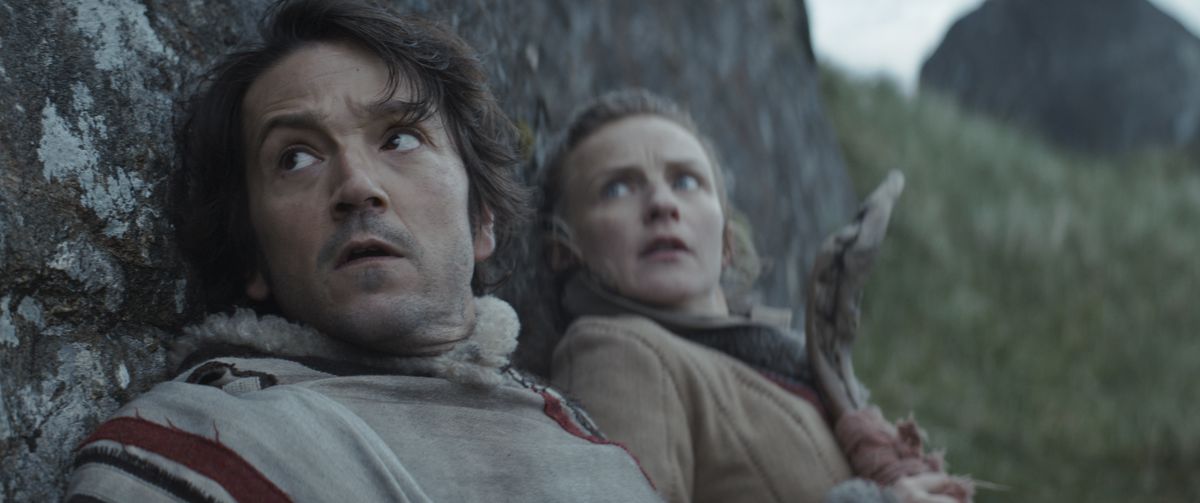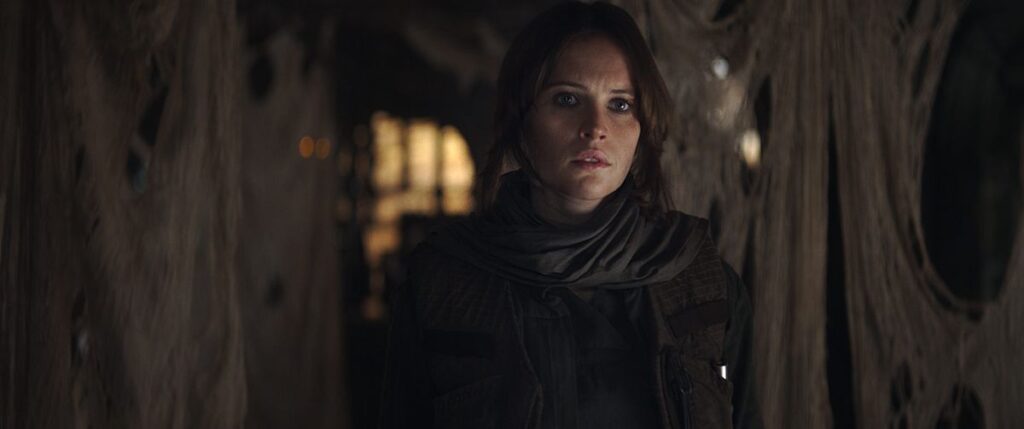Traditionally in Star Wars, getting pissed off doesn’t get you very far. Like a lot of annoying things in the Star Wars mythos, you can blame the Jedi for this: When your most iconic characters and ideas revolve around cool space wizards who adhere to a strict moral code, stepping outside that code becomes the sole provenance of the bad guys. Where this gets tricky for Jedi is that normal, understandable human emotions become anathema. While expansions to the canon add a bit of nuance — love, for example, isn’t forbidden as much as attachment is, and how it can warp a Jedi’s balance in the Force — more negative emotions like fear and anger are more verboten.
As Star Wars stories reach beyond Jedi, its heroes slowly shed these restrictions. The clone troopers of The Clone Wars and The Bad Batch deal with all manner of emotional and moral dilemmas that make the show’s premise — brainwashed clones finding their humanity and (sometimes) bucking their programming — so compelling. Shows that follow Jedi on the fringe when the Order is nigh extinct, like Kanan Jarrus or Ahsoka Tano in Rebels and beyond, dip into stories that give the stodgy wizards a more pragmatic rework, treating them as people first and Jedi second.
Yet, in part because the bulk of Star Wars shows have been aimed at a general audience, a lot of its darker turns have the edges filed off. Protagonists have angry moments, but none are angry people. Even Jyn Erso of Rogue One, perhaps the most quietly rage-fueled character to lead a Star Wars film, is ultimately on a quest to redeem her father’s legacy, and find a noble cause. Anger, in her story, is a distraction.
Image: Lucasfilm/Disney
Cassian Andor is built different. As flashbacks in the first three episodes of Andor show, his foundational trauma is a moment where Imperials fell out of the sky and murdered his friends. He is adopted by salvagers who find him beating the hell out of a console on deck. When we’re introduced to him as an adult, it’s clear: He never stops being that kid, blindly taking his rage out on the only thing left he can blame.
Crucially, when Luthen Rael decides to recruit him for the nascent Rebel Alliance, Cassian’s anger is why Luthen wants him, and it’s how he motivates him. “Don’t you want to hurt these bastards for real?” he asks, knowing it’s far and away the most compelling pitch he can make to Cassian. This is a stark contrast to Rogue One, where the Rebellion is beginning the campaign that will finally overthrow the Empire and hope is the message the freedom fighters carry with them, bringing the movement further along than bitter old soldiers like Saw Gerrera can.
But Andor, and the small group of rebels we meet in this week’s episode, “Aldhani,” are not there yet. At this early stage, the Rebel Alliance is tenuous, suspicious, and vulnerable — there are conflicting ideologies and ideas about how things should be done, both in the high-level subterfuge of secret Imperial traitors like Luthen and Mon Mothma, and in the boots-on-the-ground operations being conducted by a handful of rebels like Vel Sartha. What unites them right now is anger: a fury so ingrained that they are willing to take the bickering and curveballs like the addition of Cassian Andor, a guy they know nothing about, in stride as long as they can agree that it’s time to make the bastards pay.

Image: Lucasfilm
It’s this palpable anger that makes Andor feel worthwhile and different. The show isn’t necessarily the first Star Wars story about angry heroes, but the primary focus of most Star Wars movies and series is pulp adventure, of good winning out over evil. While there is almost certainly big, bombastic action in store, Andor has established itself in its first few episodes as primarily interested in character drama. It’s a quieter show, one that lets you seep into the malcontent felt by Cassian and those he meets.
The anger of the characters that will form the Rebel Alliance — the roots of which are unknown to us right now, though that may change — forms the bricks on which a coalition to overthrow a fascist empire is built. Eventually, loftier goals and more concrete and equitable ideals may come, if they can survive and not lose sight of their ultimate goal. But for now, the people fighting the Star Wars are finally mad as hell, and it’s never felt more relevant.

